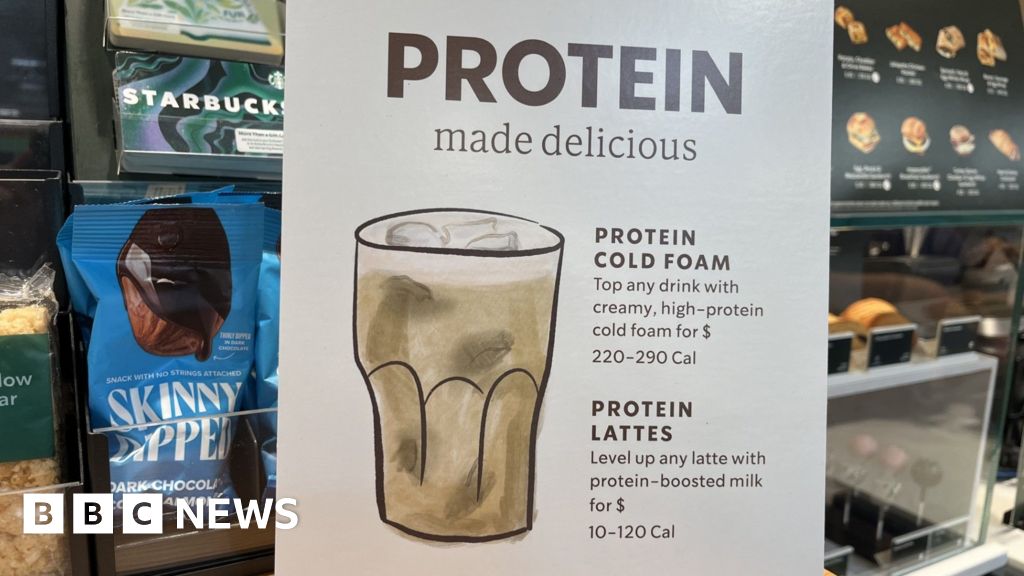British shoppers to endure surging food prices as household budgets face 'inevitable' threat
Food inflation will rise to 6 per cent by the end of the year in a "significant challenge" to household budgets, industry leaders have warned.The British Retail Consortium (BRC) has told retailers to brace for rising prices and potential job losses if Rachel Reeves hikes taxes in her next budget.With the Chancellor just a few months away from stepping up to the despatch box, two thirds of chief financial officers are expecting further price rises.A survey by the BRC found 56 per cent of retail finance chiefs, representing more than 9,000 stores, are "pessimistic" about trading conditions over the next 12 months.As a consequence of last Budget's increase of employers' National Insurance contributions and the national living wage, 85 per cent said their businesses had been force to raise prices.And 65 per cent predicted further rises over the coming year.The figure for food inflation currently sits at four per cent, but experts said prices would reach six per cent year-on-year by Christmas.It's not just price hikes - cost increases can also put jobs on the line. According to data, 42 per cent of CFOs said they have had to freeze recruitment, while 38 per cent said they have had to reduce in-store job numbers.The BRC said there were almost 100,000 fewer retail jobs in the first quarter of 2025 than the same time last year.Also, more than a third of CFOs (38 per cent)said they had had to cut investment in local communities, while 15 percent had delayed opening their own stores.LATEST MONEY HEADLINES FROM GB NEWS: 'Don't get caught in these summer scams!' Jasmine Birtles reveals how you can spot the fraudstersPension WIN as Britons avoid tax raid on retirement savings - how to claim £4k refund from HMRCDonald Trump REBUKED as US Federal Reserve defies White House calls to cut interest ratesHelen Dickinson, the chief executive of BRC, said: "Retail was squarely in the firing line of the last budget, with the industry hit by £7billion in new costs and taxes."Retailers have done everything they can to shield their customers from higher costs, but given their slim margins and the rising cost of employing staff, price rises were inevitable."The consequences are now being felt by households as many struggle to cope with the rising cost of their weekly shop."It is up to the Chancellor to decide whether to fan the flames of inflation, or to support the everyday economy by backing the high street and the local jobs they provide."At the beginning of the year, the BRC predicted that food prices would rise by an average of 4.3 per cent in the latter half of this year, due to retailers battling with increased costs.Last week, Worldpanel by Numerator, a market research firm formerly known as Kantar, reported UK grocery prices had increased at their fastest pace for 18 months.The data indicates that rising prices are set to add an average of £275 to shoppers' annual grocery spending.

Food inflation will rise to 6 per cent by the end of the year in a "significant challenge" to household budgets, industry leaders have warned.
The British Retail Consortium (BRC) has told retailers to brace for rising prices and potential job losses if Rachel Reeves hikes taxes in her next budget.
With the Chancellor just a few months away from stepping up to the despatch box, two thirds of chief financial officers are expecting further price rises.
A survey by the BRC found 56 per cent of retail finance chiefs, representing more than 9,000 stores, are "pessimistic" about trading conditions over the next 12 months.
As a consequence of last Budget's increase of employers' National Insurance contributions and the national living wage, 85 per cent said their businesses had been force to raise prices.
And 65 per cent predicted further rises over the coming year.
The figure for food inflation currently sits at four per cent, but experts said prices would reach six per cent year-on-year by Christmas.

It's not just price hikes - cost increases can also put jobs on the line.
According to data, 42 per cent of CFOs said they have had to freeze recruitment, while 38 per cent said they have had to reduce in-store job numbers.
The BRC said there were almost 100,000 fewer retail jobs in the first quarter of 2025 than the same time last year.
Also, more than a third of CFOs (38 per cent)said they had had to cut investment in local communities, while 15 percent had delayed opening their own stores.
LATEST MONEY HEADLINES FROM GB NEWS:
- 'Don't get caught in these summer scams!' Jasmine Birtles reveals how you can spot the fraudsters
- Pension WIN as Britons avoid tax raid on retirement savings - how to claim £4k refund from HMRC
- Donald Trump REBUKED as US Federal Reserve defies White House calls to cut interest rates

Helen Dickinson, the chief executive of BRC, said: "Retail was squarely in the firing line of the last budget, with the industry hit by £7billion in new costs and taxes.
"Retailers have done everything they can to shield their customers from higher costs, but given their slim margins and the rising cost of employing staff, price rises were inevitable.
"The consequences are now being felt by households as many struggle to cope with the rising cost of their weekly shop.
"It is up to the Chancellor to decide whether to fan the flames of inflation, or to support the everyday economy by backing the high street and the local jobs they provide."
At the beginning of the year, the BRC predicted that food prices would rise by an average of 4.3 per cent in the latter half of this year, due to retailers battling with increased costs.
Last week, Worldpanel by Numerator, a market research firm formerly known as Kantar, reported UK grocery prices had increased at their fastest pace for 18 months.
The data indicates that rising prices are set to add an average of £275 to shoppers' annual grocery spending.







































